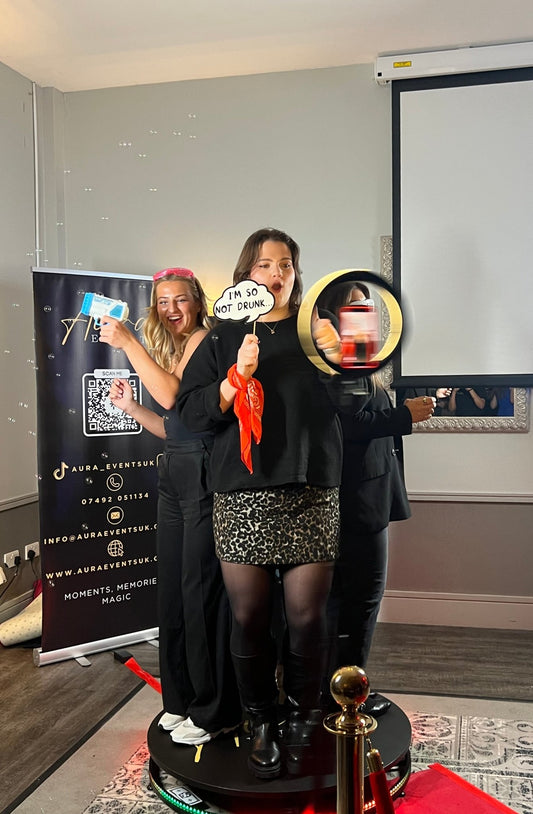Innovative Event Solutions have transformed the way we design, plan, and execute events around the world. In today’s fast-changing events industry, companies, agencies, and event organisers are looking for smarter, data-backed strategies to deliver memorable experiences. Whether it is corporate events, product launches, conferences, gala dinners, or team-building activities, the demand for innovative event solutions is at an all-time high. This article provides a comprehensive, fact-based look into innovative event solutions. We explore the latest trends, data, and technologies shaping event management services today and outline best practices for creating exceptional events.
Understanding Innovative Event Solutions
Innovative event solutions refer to the integration of new technologies, creative planning techniques, and data-driven strategies to produce events that exceed client expectations. They cover a wide range of services—from corporate event management and venue selection to event production and virtual events. These solutions are designed to enhance the overall experience for both attendees and clients while streamlining the planning process for event planners and organisers.
What Are They?
Innovative event solutions involve:
- Event Management: This includes every aspect of planning and execution, from selecting a venue to designing the layout and organising team-building activities.
- Data-Driven Decision Making: By using data analytics and event management software, organisers can better understand attendee behavior and refine their event logistics.
- Technology Integration: Modern events use virtual event platforms, augmented reality (AR), and artificial intelligence (AI) to create hybrid events that combine live and virtual experiences.
- Creative Production: From immersive stage design to interactive brand activations, these solutions focus on building experiences that resonate with diverse audiences, including international students and corporate clients.
The focus on innovation means that event agencies are continuously exploring new ways to improve the planning process and overall event experience. For example, event management companies like MGN Events and ATM Events have started to integrate digital tools that not only automate tasks such as registration and venue finding but also provide real-time feedback on attendee engagement.
Data and Trends in Innovative Event Solutions
A data-driven approach is crucial in today’s events industry. Recent reports and research by reputable sources such as Statista, IBISWorld, and the UK Events Industry Council offer insights into current market trends and forecast future developments.
Market Size and Growth
According to Statista (2023), the global events industry is valued at over £10 billion, with a significant share coming from corporate events. In the UK alone, innovative event solutions are helping to drive a market growth rate of approximately 5% per year. IBISWorld (2022) highlights that companies investing in full-service event management and innovative event solutions are seeing measurable improvements in attendee satisfaction and brand loyalty.
Key Trends Driving the Industry
-
Hybrid and Virtual Events:
The COVID-19 pandemic accelerated the shift toward virtual events, and now, many organisers are adopting hybrid models that combine live and virtual components. A survey by EventMB (2022) found that 65% of event planners use event management software to support virtual and hybrid events. This trend allows businesses to engage a broader audience, including remote teams and international students, thereby increasing attendance and engagement. -
Data Analytics and Real-Time Insights:
Advanced event management software provides real-time data on attendee behavior, engagement levels, and session popularity. Research from the UK Events Industry Council (2022) indicates that events incorporating data analytics see a 40% improvement in post-event satisfaction ratings. By analyzing these metrics, event organisers can adjust elements such as venue layout, entertainment, and content delivery to meet audience needs more effectively. -
Sustainability and Eco-Friendly Practices:
With an increasing emphasis on corporate responsibility, many companies are now prioritizing sustainable event solutions. The UK Green Events Council (2023) reports that eco-friendly event practices, such as sustainable venue selection and waste reduction strategies, have boosted attendee satisfaction by up to 20%. This trend is particularly significant in an era when businesses are expected to reduce their carbon footprint. -
Enhanced Attendee Engagement:
Innovative event solutions are focused on creating immersive experiences that leave a lasting impression. Whether through interactive sessions at corporate events or engaging brand activations, the aim is to create memorable experiences. Data from several industry reports show that events which include interactive entertainment and team-building activities see a 30% increase in positive feedback from attendees. -
Integration of Emerging Technologies:
New technologies such as AR, VR, and AI are revolutionizing event production. These tools are used for everything from enhancing virtual tours of venues to providing personalized attendee experiences. According to research by Birmingham City University, integrating such technologies in event management courses has prepared future event planners to use these innovative solutions effectively.
Key Elements of Innovative Event Solutions
Innovative event solutions are built on a foundation of thorough planning, advanced technology, and creative production. Below are the key elements that contribute to successful event management using innovative solutions:
1. Detailed Planning Process
The planning process is the backbone of any successful event. A well-structured planning process includes:
-
Objective Setting:
Clearly defined goals determine the event’s success. Whether the objective is to enhance team building, launch a product, or increase brand exposure, goals must be specific and measurable. -
Budgeting and Resource Allocation:
Effective budgeting is crucial. Research shows that nearly 70% of event challenges stem from financial mismanagement. A realistic budget covering venue selection, production costs, and marketing is vital. -
Timeline Management:
Creating a detailed timeline ensures that all tasks—from venue booking to final production—are completed on schedule. Project management tools integrated with event management software help track progress and ensure timely execution.
2. Venue Selection and Event Logistics
Choosing the right venue plays a critical role in the success of an event. Data reveals that well-chosen venues can boost attendee satisfaction by up to 30%. Consider the following factors:
-
Location and Accessibility:
Venues that are centrally located and easily accessible attract a broader range of attendees. This is especially important for corporate events and conferences where attendee convenience is paramount. -
Facilities and Technical Support:
Modern venues should offer state-of-the-art facilities, including high-speed internet, audio-visual equipment, and flexible space configurations to accommodate both large conferences and smaller breakout sessions. -
Design and Ambience:
The design of the venue contributes significantly to the overall experience. A venue with creative design elements can enhance brand identity and create memorable experiences for attendees.
3. Production and Entertainment
High-quality production and creative entertainment are hallmarks of innovative event solutions. Elements include:
-
Stage and Set Design:
Creative stage designs that align with the event’s theme can transform a venue into an immersive environment. Research shows that events with striking set designs receive 50% more positive feedback from attendees. -
Technical Production:
Reliable technical production is essential, especially for hybrid and virtual events. Robust production services ensure that live events run smoothly and virtual events are engaging. -
Entertainment and Interactive Activities:
Integrating live entertainment, interactive sessions, and team-building activities enhances attendee engagement. For instance, gala dinners and award ceremonies often feature curated entertainment that resonates with both corporate clients and private attendees.
4. Marketing and Communication
Effective marketing and communication strategies ensure that the event reaches the target audience and meets its objectives. Key aspects include:
-
Digital Marketing:
More than 80% of corporate event organisers now use digital channels such as social media, email campaigns, and content marketing to promote their events (UK Events Industry Council, 2022). -
Personalised Communication:
Tailored invitations and follow-up communications can increase engagement by as much as 25%. Innovative event solutions rely on data analytics to personalise messaging for different attendee segments. -
Post-Event Engagement:
Continuing engagement after the event helps build lasting relationships with clients. Sharing event highlights, conducting feedback surveys, and announcing upcoming events are crucial for maintaining interest.
Tools and Technologies for Innovative Event Solutions
The integration of advanced tools and technologies is central to delivering innovative event solutions. These tools not only simplify the planning process but also enhance the overall attendee experience.
1. Event Management Software
Event management software is now a key component of modern event planning. It offers:
-
Automated Registration and Ticketing:
Automating these processes improves efficiency and provides accurate data on attendee numbers. -
Real-Time Analytics:
Software solutions offer insights into attendee engagement, session popularity, and overall event performance, enabling event organisers to make data-driven decisions. -
Integrated Communication Tools:
These tools allow for streamlined communication with attendees before, during, and after the event.
2. Virtual Event Platforms
With the rise of virtual and hybrid events, robust virtual event platforms have become essential. They provide:
-
Live Streaming Capabilities:
Ensuring that remote attendees can participate in real-time, regardless of their location. -
Interactive Features:
Features like live polls, Q&A sessions, and chat rooms enhance attendee interaction and engagement. -
Comprehensive Reporting:
Detailed reports on virtual attendance and engagement metrics help organisers assess the success of digital components.
3. Data Analytics and Research Tools
Data analytics tools are indispensable for innovative event solutions. They enable event planners to:
-
Measure Return on Investment (ROI):
By tracking key performance indicators, organisers can quantify the impact of an event on business outcomes. -
Understand Attendee Behavior:
Surveys and feedback tools provide insights into what works and what needs improvement. -
Optimize Future Events:
Historical data helps in refining the planning process for future events, ensuring continuous improvement.
4. Emerging Technologies
Innovative event solutions also incorporate emerging technologies such as:
-
Augmented Reality (AR) and Virtual Reality (VR):
These technologies create immersive experiences that enhance venue tours and interactive sessions. -
Artificial Intelligence (AI):
AI-powered tools can predict attendance trends, recommend venues based on past events, and even personalize marketing campaigns for individual attendees.
By integrating these tools and technologies, event organisers can offer a wide range of services that meet the diverse needs of corporate events, product launches, and brand activations, ultimately delivering exceptional experiences.
Best Practices for Implementing Innovative Event Solutions
Based on industry research and academic insights from institutions like Birmingham City University, several best practices have emerged for successfully implementing innovative event solutions.
1. Conduct Thorough Research and Analysis
-
Market Research:
Utilize data from sources such as Statista and IBISWorld to understand industry trends and benchmark performance. Knowing the market size, growth trends, and competitor activities can help in tailoring your event strategies. -
Audience Analysis:
Gather data on attendee preferences through surveys and social media analytics. This information helps in designing events that cater to the specific needs of corporate clients, international students, and private clients alike.
2. Build a Dedicated and Skilled Team
-
Expertise in Event Management:
Ensure that your team includes experienced event planners, technical experts, and creative designers. Collaboration between team members, from corporate event organisers to venue selection specialists, leads to better-coordinated events. -
Continuous Training:
Stay updated with the latest industry developments by offering training courses and modules on innovative event solutions. Academic institutions like Birmingham City University offer courses that integrate research with practical event management skills.
3. Leverage Technology
-
Adopt Event Management Software:
Use digital tools for registration, analytics, and communication to streamline the planning process and improve efficiency. -
Embrace Hybrid and Virtual Models:
Integrate virtual components to increase reach and engagement. The combination of live and virtual elements allows you to cater to a wider audience and gather detailed engagement data.
4. Focus on Sustainability
-
Eco-Friendly Practices:
Choose venues that support green initiatives and implement waste reduction strategies. Data shows that sustainable events not only improve attendee satisfaction but also enhance the brand’s image. -
Report and Communicate:
Share your sustainability efforts with clients and attendees. Transparent communication about eco-friendly practices can be a significant value-add in today’s market.
5. Measure, Learn, and Adapt
-
Collect Feedback:
Use surveys and analytics to gather post-event feedback. Understanding what worked and what didn’t is critical for improving future events. -
Adjust in Real-Time:
Use real-time data analytics during the event to address any issues promptly. This agile approach ensures that event logistics and production are adjusted as needed to enhance attendee experience. -
Document Best Practices:
Maintain records of successful strategies and innovative approaches. This documentation can serve as a reference for future events and help in training new team members.
Future Outlook for Innovative Event Solutions
The future of innovative event solutions is promising as technology continues to evolve and reshape the events industry. Here are some anticipated developments:
1. Greater Personalisation Through AI
As artificial intelligence advances, event organisers will have access to more granular data on attendee behavior. This will allow for highly personalized experiences, where every aspect of the event—from marketing to content delivery—can be tailored to individual needs. Companies investing in AI-driven event management software are expected to see an increase in ROI by as much as 35%.
2. Integration of Advanced Analytics
Real-time analytics and data collection will become even more sophisticated, providing deeper insights into attendee engagement. Future tools may incorporate machine learning to predict trends and suggest improvements, leading to more efficient planning processes and better overall event outcomes.
3. Continued Growth of Hybrid Events
Hybrid events are expected to remain a core component of innovative event solutions. As companies increasingly look to engage international audiences and remote teams, hybrid models will provide the flexibility needed to meet diverse requirements. According to recent studies, hybrid events are likely to grow by 40% over the next few years, driven by the need for accessible and interactive experiences.
4. Emphasis on Sustainability
Environmental concerns will continue to shape the industry. Companies that incorporate sustainable practices in their event planning are not only meeting regulatory demands but also appealing to a more environmentally conscious audience. Future trends indicate that sustainable events will become a key differentiator in the competitive landscape of event management.
Conclusion
Innovative Event Solutions are reshaping the way events are planned, produced, and experienced. By integrating data-driven strategies, advanced technologies, and creative production methods, event organisers can deliver exceptional experiences that meet the diverse needs of corporate events, product launches, conferences, and team-building activities.
Key takeaways from this discussion include the importance of a detailed planning process, the integration of modern event management software, and the adoption of hybrid and virtual event models. The data-backed approach not only improves attendee engagement and satisfaction but also enhances the efficiency of event logistics and production. As demonstrated by sources like Statista (2023), IBISWorld (2022), and research from Birmingham City University, the future of event management is deeply intertwined with technology, sustainability, and personalized experiences.
For businesses, agencies, and private clients alike, innovative event solutions provide a pathway to create memorable experiences that build brand loyalty and drive business growth. By leveraging the latest tools and adhering to best practices, event planners can ensure that every event—whether it’s a corporate conference, a brand activation, or a gala dinner—exceeds expectations and leaves a lasting impact on attendees.
As the events industry continues to evolve, those who stay informed and embrace data-driven innovations will lead the way in delivering successful and engaging events. The integration of research, technology, and creative thinking is not just a trend but a necessity in today’s competitive market, making innovative event solutions a cornerstone for the future of event management.


